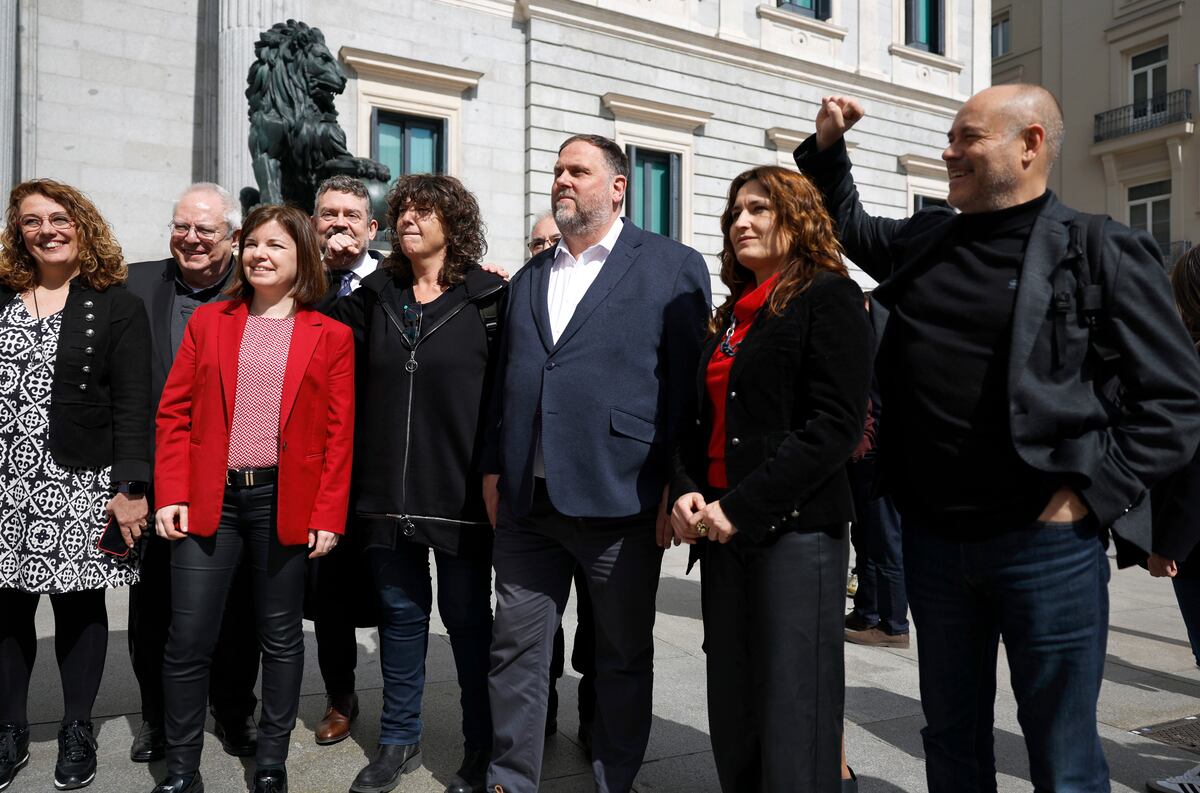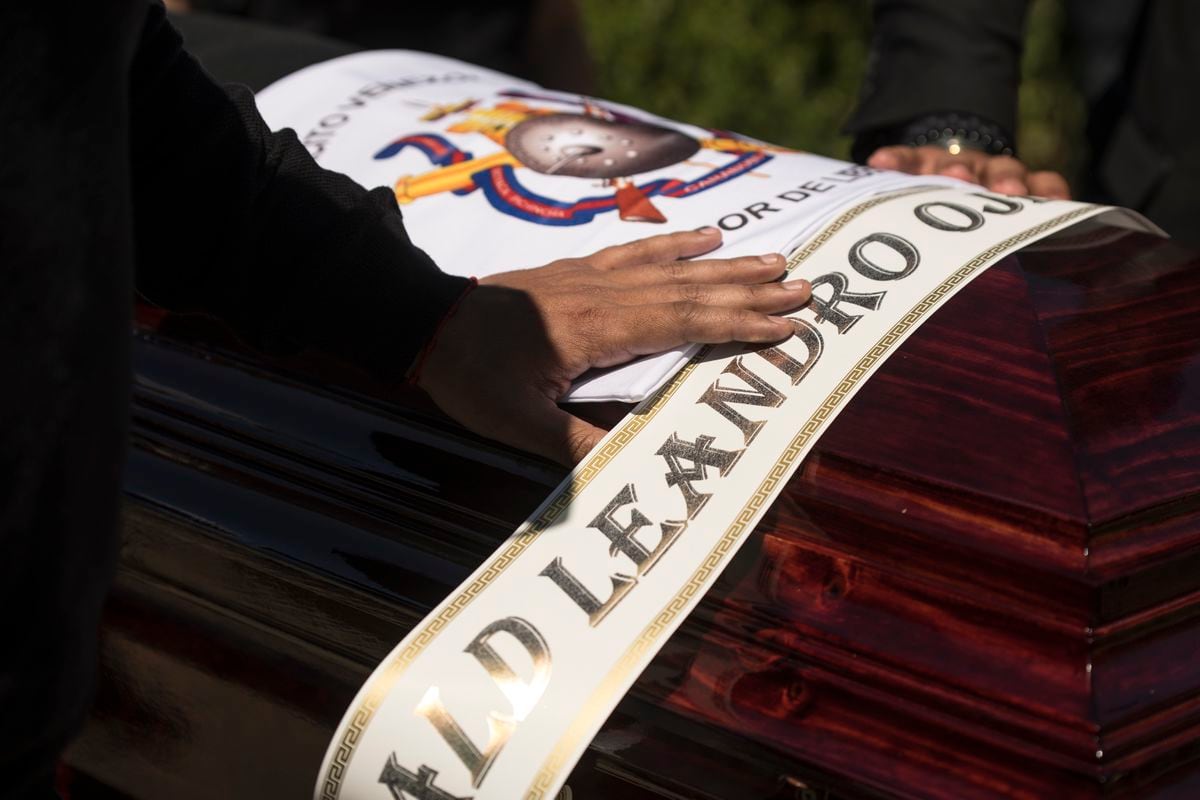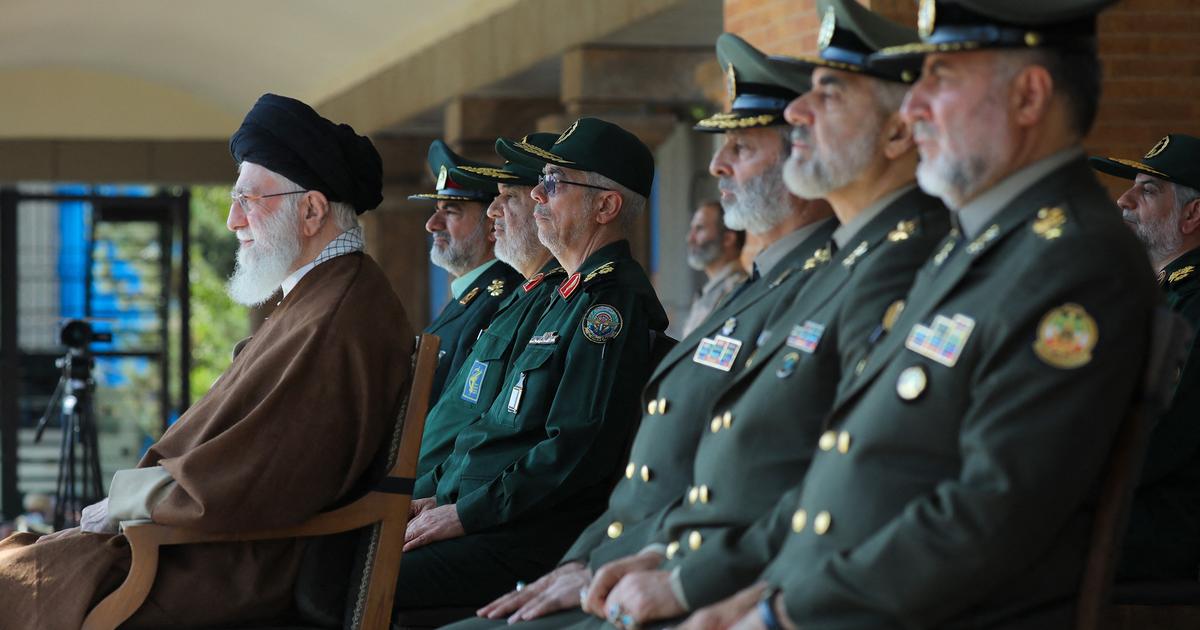Chile has the challenge of reforming, says analyst 1:13
(CNN Spanish) -
With a Constitutional Convention underway, the state of emergency decreed in various parts of the country due in part to the Mapuche conflict and the still fresh memory of the massive demonstrations of 2019, Chile will elect a new president this Sunday to transit this difficult road and legislators to renew Congress in a time of change.
The first round will take place on November 21, and if the minimum conditions for electing the positions are not met, there will be a second round on December 19, 2021. On Thursday, November 18, four days before, the electoral propaganda will conclude.
The undecided, a key player in the Chilean elections: who are they and how could they affect the result?
Who are competing and how does Chile get to these elections?
Here are the main keys.
What is chosen?
Chileans will go to the polls to elect a new president, senators and deputies for the National Congress of Chile and regional councilors.
They burned the things of this Peruvian after migrating to Chile 2:56
In the case of the presidential elections, there are seven registered candidates:
advertising
Sebastián Sichel Ramírez, Chile Let's Go Pact
Gabriel Boric Font, Pact I Approve Dignity
José Antonio Kast Rist, Republican Party of Chile
Franco Parisi Fernández, People's Party
Marco Enríquez-Ominami Gumucio, Progressive Party of Chile
Yasna Provoste Campillay, Christian Democratic Party
Eduardo Artés Brichetti, Patriotic Union Party
According to the current Constitution of Chile, the person who obtains the absolute majority of the votes will become president.
If this does not happen, the two candidates who have obtained the most votes will have to compete in a second round.
There will also be elections for the National Congress of Chile.
In the case of the Chamber of Deputies, whose members have four-year terms, all of the seats will be renewed.
In the Chamber of Senators, meanwhile, only a part of its members will be renewed - with terms of eight years - belonging to the jurisdictions of Antofagasta, Coquimbo, O'Higgins, Ñuble, Biobío, Los Ríos, Los Lagos, Magallanes and Metropolitana .
Keys to understanding the Mapuche conflict in Argentina and Chile
On the same day, regional councilors belonging to the 16 regional councils will also be elected - bodies with normative, decision-making and supervisory functions, according to Law 19,175.
What are the main candidates for the presidency?
The successor to Sebastián Piñera, current Chilean president, is not yet clear, but polls have been showing some early trends.
The controversial far-right candidate José Antonio Kast adds support 3:15
According to the last consultation published by Plaza Pública Cadem on November 5, the candidates José Kast, of the Republican Party of Chile, and Gabriel Boric, of the Pact Approve Dignity, lead the voting intentions with 25% and 19%, respectively.
In third place is Franco Parisi, from the People's Party, with 10%, and the undecided, a key factor, reach 22%.
The survey was conducted between November 2 and 4 through cell phone calls, and 1,010 people over 18 years of age were consulted, with a margin of error of 3.1 percentage points, according to the Plaza Pública Cadem methodology.
While a study by the consulting firm Activa / Pulso Ciudadano, also carried out at the beginning of November, offered these results: 21.7% for Kast and 17.7% for Boric, although it registers Yasna Provoste in third place, with 10.9 %, and a number of undecided that amounts to 14.5%.
In this case, Activa / Pulso Ciudadano consulted 2,352 people over 18 years of age through online interviews between November 2 and 5, 2021, with a margin of error of 2%, according to the published methodology.
These numbers are far from the 50% + 1 required by the current Constitution, which, if confirmed, would lead to a possible second round between Kast and Boric.
In this regard, Cadem registers a preference for Kast (44%) over Boric (40%), while Activa registers a preference for Boric (42.9%) over Kast (36.8%).
José Kast and Gabriel Boric
Kast was born in 1966 and is a lawyer.
He belongs to a family linked to politics and was a deputy for the Metropolitan Region between 2002 and 2018 and previously a councilor of Buin, according to the bibliographic review of the National Congress of Chile.
He had already participated in the 2017 presidential elections, when he obtained 7.93% of the votes.
He is a supporter of Pinochet and one of the founders of the Republican Party of Chile, a new far-right political force, and previously was a member of the Independent Democratic Union, an opponent of the Concertation of Parties for Democracy that ruled Chile after the end of the dictatorship of Augusto Pinochet.
Among some of his proposals is to build a ditch on the border to prevent the arrival of migrants and withdraw Chile from the UN, in addition to describing himself against adoption by same-sex couples and the right to abortion.
The advance of the extreme right in Chile 0:57
While Boric was born in 1986, he is also a lawyer and has been a deputy for the Magallanes and Chilean Antarctic Region since 2014, according to his own bibliographic review.
He was president of the Federation of Students of the University of Chile (FECH), succeeding Camila Vallejos, and led the 2011 student protests calling for greater access to education.
Boric also participated in the signing of the "Agreement for Social Peace and the New Constitution", in the context of the "social outbreak" of 2019.
He belongs to Convergencia Social, a left-wing political party linked to the Broad Front, and after the primary elections, in July 2021, he became the candidate of the Pacto Approve Dignity coalition.
Neither Kast nor Boric are part of the traditional forces that have governed Chile in recent decades: Nueva Mayoría, by former President Michelle Bachelet and heir to the Concertación, and Chile Vamos, by current President Piñera.
How does Chile get to these elections?
In mid-October Piñera decreed a constitutional state of emergency in the Biobío and Arauco provinces, in the Biobío region, as well as in the Malleco and Cautín provinces, in the La Araucanía region, citing as a cause “ the serious and repeated acts of violence linked to drug trafficking, terrorism and organized crime committed by armed groups ”.
The situation is part of the historical Mapuche conflict, which affects both Chile and Argentina, and which has grown in intensity in recent months with demonstrations and incidents on both sides of the border.
The state of emergency was extended twice, the last time for another 15 days, on November 9.
1 of 10
|
The violent incidents occurred during the day in which thousands of people took to the streets to commemorate the two years since the start of the historic protests in Chile.
The authorities confirmed that there were two deaths, see in this gallery the most shocking images of the day.
(Photo: Claudio Santana / Getty Images)
2 of 10
|
A protester waves a Wenufoye flag during clashes with riot police near the La Moneda Presidential Palace.
In addition to two deaths, the day left more than 400 detainees (Photo: Claudio Santana / Getty Images)
3 of 10
|
Riot police use water carts to disperse protesters near the Presidential Palace in La Moneda.
(Photo: Claudio Santana / Getty Images)
4 of 10
|
Protesters confront riot police near the La Moneda Presidential Palace.
On October 18, 2019, an increase in the subway fare triggered demonstrations calling for measures to reduce social and economic inequality.
(Photo: Claudio Santana / Getty Images)
5 of 10
|
The Chilean authorities reported that, after the riots, there were two deaths and 450 protesters were arrested.
(Photo: Claudio Santana / Getty Images)
6 of 10
|
The incidents occurred during events held in different parts of the country to commemorate the two years since the start of the historic 2019 protests (Photo: Claudio Santana / Getty Images)
7 of 10
|
A protester throws a Molotov cocktail during clashes with riot police near the Presidential Palace in La Moneda.
(Photo: Claudio Santana / Getty Images)
8 of 10
|
Some protesters carried Wenufoye and Chilean flags during clashes with riot police in Santiago.
(Photo: Claudio Santana / Getty Images)
9 of 10
|
Protesters perform during the protest in celebration of the anniversary.
(Photo: Claudio Santana / Getty Images)
10 of 10
|
The events were held in different parts of the country, but had their epicenter in Santiago.
(Photo: Claudio Santana / Getty Images)
The country is also experiencing a migration crisis in the north due to the influx of Venezuelans and Peruvians, among other nationalities, which has led to numerous violent incidents between residents and migrants trying to reach the country.
Chile, one of the richest countries in the region, is also facing an economic downturn in 2020 due to the Covid-19 pandemic - its GDP fell by 6%, its worst recession in decades - and is looking for a way to reactivation.
At the same time, since July 7, a Constitutional Convention has been underway in Chile, chaired by the Mapuche activist Elisa Loncón, to draft a new constitution to replace the 1980 one, adopted during the Pinochet dictatorship.
The call for the drafting of a new constitution was approved in 2020 - through a plebiscite after the "Agreement for Social Peace and the New Constitution" - and seeks to incorporate new rights and guarantees into the text in a context of crisis of legitimacy and conflict. Social.
The final text should be ready by mid-2022.
The road to this Constituent Convention began, in turn, with the "social outbreak" of 2019, a wave of massive demonstrations in Chile due to high living costs and inequality, which convulsed the country after violent clashes between protesters took place. and the police - leaving at least 31 dead - after which there was a curfew in many regions and the deployment of armed forces in the streets for the first time in 30 years.
Elections

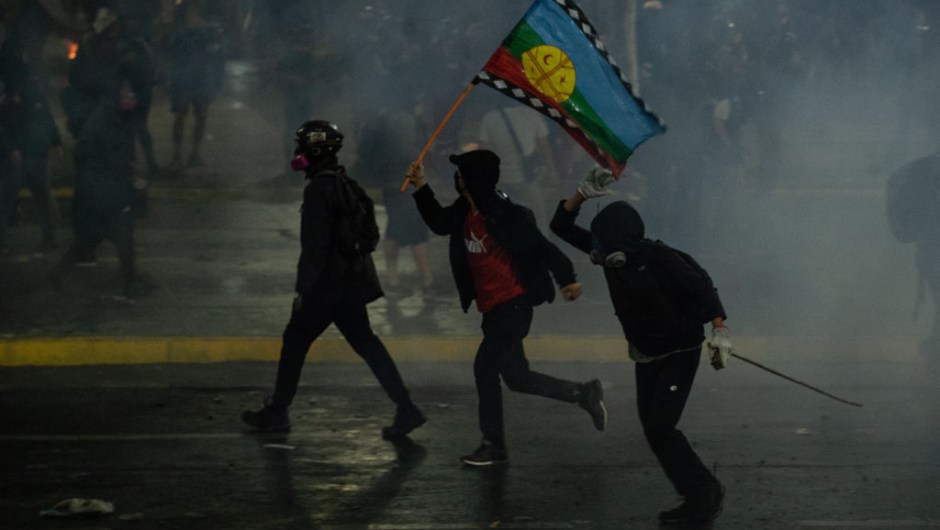
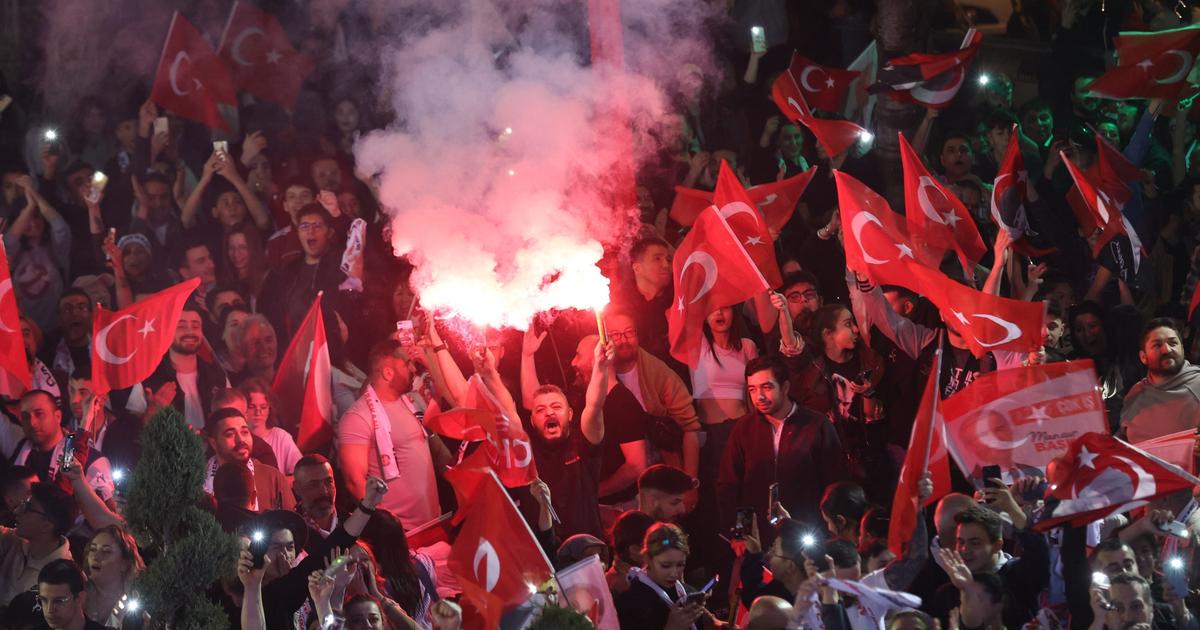

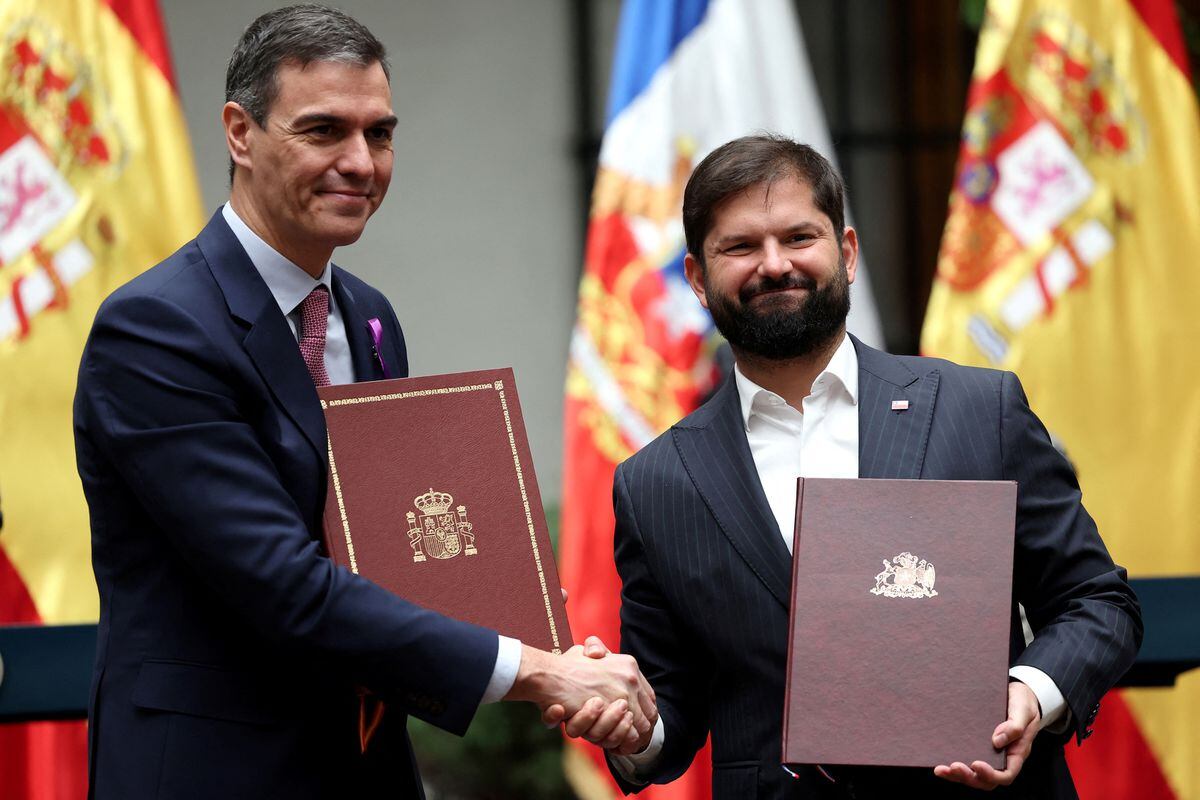
/cloudfront-eu-central-1.images.arcpublishing.com/prisa/BUA2NNBCCBACHEPXXR6NIRKCA4.jpg)
